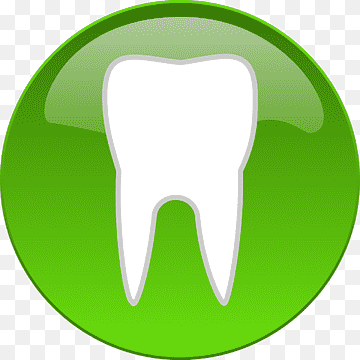Diabetes Mellitus, a chronic metabolic disorder affecting millions worldwide, not only impacts various systems within the body but also poses significant challenges to dental health. The complex interplay between diabetes and oral health has been the subject of extensive research, leading to a better understanding of the link between the two. In this article, we will delve into the intricate relationship between Diabetes Mellitus and dental health, exploring the diagnosis, treatment, symptoms, and causes of dental complications in individuals with diabetes. Additionally, we will discuss effective strategies for managing symptoms and preventing dental issues in those affected by Diabetes Mellitus. By shedding light on this crucial aspect of diabetes care, we hope to empower both patients and dental professionals with the knowledge necessary to ensure optimal oral health for individuals living with diabetes.
1. "Understanding the Link: Diabetes Mellitus and Dental Health"
Diabetes mellitus is a chronic metabolic disorder characterized by elevated blood sugar levels due to either insufficient insulin production or the body's inability to effectively use insulin. While the connection between diabetes and dental health may not be immediately apparent, research has shown that individuals with diabetes are at a higher risk of developing various oral health issues.
One of the primary reasons for the link between diabetes mellitus and dental health is the compromised immune system often associated with diabetes. When blood sugar levels are consistently high, the body's ability to fight off infections is weakened, making individuals with diabetes more susceptible to oral infections such as gum disease (gingivitis and periodontitis).
Gum disease is a common oral health problem characterized by inflammation and infection of the gums. In individuals with diabetes, gum disease can be more severe and progress rapidly if blood sugar levels are not well controlled. This is because high blood sugar levels provide an ideal environment for bacteria to thrive, leading to increased plaque formation and higher chances of infection.
Furthermore, diabetes can also lead to a decrease in saliva production, a condition known as dry mouth or xerostomia. Saliva plays a crucial role in maintaining oral health as it helps to wash away food particles, neutralize acids, and prevent the growth of harmful bacteria. When saliva production is reduced, the risk of tooth decay, oral infections, and bad breath increases significantly.
Additionally, diabetes can impact the body's ability to heal. Wounds and injuries in the mouth, such as those resulting from dental procedures or accidental bites, may take longer to heal in individuals with diabetes. This delayed healing can increase the risk of infections and complications following dental treatments.
2. "Diagnosing and Treating Dental Complications in Diabetes Patients"
Diagnosing and Treating Dental Complications in Diabetes Patients
Diabetes mellitus, a chronic metabolic disorder characterized by high blood sugar levels, affects millions of people worldwide. While the disease primarily impacts the body's ability to produce or utilize insulin, it can also have deleterious effects on oral health. Dental complications are prevalent among individuals with diabetes, making it crucial for dental professionals to be well-versed in diagnosing and treating such issues.
One of the most common dental complications observed in diabetes patients is periodontal disease. Periodontitis, an advanced form of gum disease, occurs when bacteria-laden plaque builds up on the teeth and irritates the surrounding gum tissue. In individuals with diabetes, the body's impaired ability to fight off infections can lead to the rapid progression of periodontal disease. Symptoms include red, swollen, and bleeding gums, persistent bad breath, receding gum line, and even tooth loss.
When diagnosing dental complications in diabetes patients, dentists should pay close attention to the individual's medical history and conduct a thorough oral examination. It is essential to inquire about the patient's diabetes management, including their blood sugar control and any related complications. Additionally, dentists may collaborate with endocrinologists or primary care physicians to gather comprehensive information about the patient's overall health.
During the oral examination, dentists should closely evaluate the patient's gum health, looking for signs of inflammation, recession, or deep periodontal pockets. X-rays can help identify bone loss, which is often associated with advanced periodontal disease. Dentists may also perform a comprehensive dental cleaning to remove plaque and tartar buildup, allowing for a
3. "Managing Symptoms and Preventing Dental Issues in Diabetes Mellitus"
Managing Symptoms and Preventing Dental Issues in Diabetes Mellitus
Diabetes mellitus is a chronic metabolic disorder that affects millions of people worldwide. It is characterized by high blood glucose levels due to insufficient insulin production or improper utilization by the body. This condition not only affects various organs and systems in the body but also has a significant impact on oral health.
People with diabetes are more prone to developing dental issues such as gum disease, tooth decay, dry mouth, and oral infections. Additionally, diabetes can exacerbate existing dental problems and hinder their healing process. Therefore, it is crucial for individuals with diabetes to manage their symptoms effectively and take preventive measures to maintain optimal oral health.
One of the primary symptoms of diabetes that affects dental health is dry mouth, also known as xerostomia. Reduced saliva production leads to a lack of natural defense against bacteria and plaque buildup in the mouth. This, in turn, increases the risk of tooth decay and gum disease. To combat dry mouth, individuals should stay hydrated by drinking plenty of water throughout the day. Chewing sugar-free gum or using saliva substitutes can also help stimulate saliva production.
Maintaining good oral hygiene is paramount for people with diabetes. Regular brushing and flossing are essential to remove plaque and food particles that can contribute to dental problems. Using a soft-bristled toothbrush and fluoride toothpaste is recommended to prevent gum irritation and tooth sensitivity. It is also advisable to replace toothbrushes every three to four months or sooner if the bristles become frayed.
Proper diet plays a vital role in managing diabetes and preventing dental issues. Individuals should focus on a well-balanced diet that includes lean
